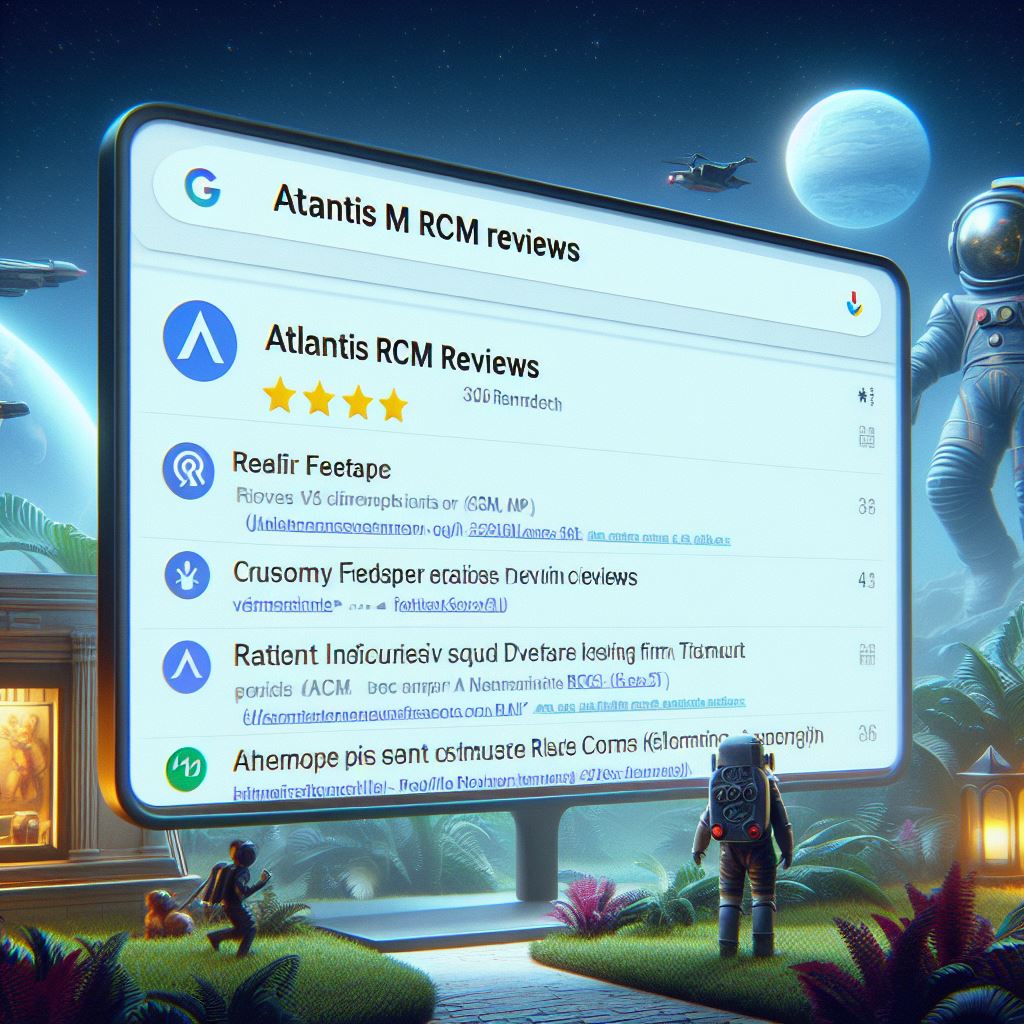
Benefits of Medical Billing: How It Can Boost Your Healthcare Business
Medical billing is a vital process in healthcare that ensures accurate and timely payments for the services rendered. It involves collecting, verifying, coding, submitting, and reconciling claims from patients and insurance companies. Medical billing can be a complex and tedious task that requires specialized skills and knowledge. However, when done efficiently and effectively, medical billing can bring many benefits to your healthcare business.
In this blog post, we will explore the benefits of medical billing in detail and how it can help you improve your revenue cycle, cash flow management, accuracy and compliance, time and resource efficiency, patient satisfaction, and long-term success. We will also discuss some of the common challenges and solutions in medical billing, as well as the future trends and opportunities in this field.
The Fundamentals of Medical Billing
Before we dive into the benefits of medical billing, let’s first review the basics of what medical billing is and how it works.
What is Medical Billing and How it Works?
Medical billing is the process of submitting and following up on claims to insurance companies or other payers for the services provided by healthcare providers. The goal of medical billing is to obtain reimbursement for the services rendered and to ensure that the provider gets paid correctly and promptly.
So, how Medical Billing Works? Medical billing typically involves the following steps:
- Patient Information and Registration: The provider collects the patient’s personal, demographic, insurance, and medical information during the registration process. This information is essential for verifying the patient’s eligibility for coverage, obtaining prior authorization if needed, and creating a patient account.
- Insurance Verification: The provider verifies the patient’s insurance information with the payer to confirm the coverage details, benefits, deductibles, co-pays, co-insurance, and other relevant information. This step helps to avoid claim denials or rejections due to incorrect or incomplete information.
- Coding and Documentation: The provider assigns appropriate codes to the diagnosis and procedures performed on the patient using standardized coding systems such as ICD-10-CM (International Classification of Diseases, 10th Revision, Clinical Modification) for diagnosis codes and CPT (Current Procedural Terminology) for procedure codes. The provider also documents the clinical notes, reports, test results, and other supporting evidence for the services rendered. Coding and documentation are crucial for ensuring that the claim reflects the medical necessity and quality of care provided.
- Claim Submission: The provider submits the claim electronically or manually to the payer using a standard format such as CMS-1500 (Centers for Medicare & Medicaid Services) or UB-04 (Uniform Bill) forms. The claim contains all the relevant information about the patient, provider, payer, diagnosis, procedures, charges, modifiers, and other details. The claim submission process may vary depending on the type of payer (e.g., Medicare, Medicaid, private insurance) and the type of service (e.g., inpatient, outpatient, emergency).
- Payment Posting and Reconciliation: The payer processes the claim and sends a remittance advice (RA) or explanation of benefits (EOB) to the provider. The RA or EOB shows how much the payer paid or denied for each service line item on the claim. The provider posts the payment to the patient account and reconciles any discrepancies or errors between the claim and the payment. The provider also follows up on any unpaid or underpaid claims by appealing or resubmitting them as necessary.

Benefits of Medical Billing
Now that we have covered the fundamentals of medical billing, let’s look at some of the benefits of medical billing can bring to your healthcare business.
Accelerated Revenue Cycle
One of the main benefits of medical billing is that it can accelerate your revenue cycle, which is the time it takes from providing a service to receiving payment for it. A faster revenue cycle means that you can improve your cash flow and profitability by:
- Streamlining Claim Processing: By submitting accurate and complete claims electronically, you can reduce the chances of errors, rejections, or denials that can delay your payments. You can also track and monitor your claims status online and receive instant feedback from payers. This way, you can identify and resolve any issues quickly and efficiently.
- Faster Payments and Reduced Payment Delays: By verifying insurance information, obtaining prior authorization, and providing clear and understandable invoices to patients, you can ensure that they pay their share of the bill on time and in full. You can also offer convenient payment options such as online portals, credit cards, or payment plans to facilitate payment collection. By following up on unpaid or underpaid claims promptly, you can avoid missing deadlines or losing revenue due to write-offs or bad debts.
- Minimized Rejection and Denial Rates: By coding and documenting your services properly, you can demonstrate the medical necessity and quality of care provided to your patients. You can also comply with the payer’s policies and guidelines regarding coding, billing, and reimbursement. This way, you can reduce the risk of having your claims rejected or denied due to errors, inconsistencies, or lack of evidence.

Improved Cash Flow Management
Another benefit of medical billing is that it can improve your cash flow management, which is the ability to balance your income and expenses. A better cash flow management means that you can optimize your financial performance by:
- Timely Collections and Cash Flow Predictability: By accelerating your revenue cycle, you can collect your payments faster and more consistently. This way, you can have a steady and predictable cash flow that allows you to plan your budget and allocate your resources accordingly. You can also avoid cash flow shortages or surpluses that can affect your operations or growth opportunities.
- Reduction in Accounts Receivable (AR) Days: Accounts receivable (AR) days is a measure of how long it takes for you to collect your payments from your customers. A high AR days indicates that you have a lot of outstanding payments that are not yet collected. This can negatively impact your cash flow and liquidity. By improving your billing efficiency and accuracy, you can reduce your AR days and increase your cash turnover ratio.
Enhanced Accuracy and Compliance
Another one of the benefits of medical billing is that it can enhance your accuracy and compliance, which are essential for ensuring that you get paid correctly and avoid any legal or regulatory issues. A higher accuracy and compliance means that you can protect your reputation and credibility by:
- Proper Coding and Documentation: By using standardized coding systems such as ICD-10-CM and CPT codes, you can ensure that your claims reflect the diagnosis and procedures performed on your patients accurately and consistently. You can also document your clinical notes, reports, test results, and other supporting evidence for the services rendered in a clear and detailed manner. This way, you can avoid undercoding or overcoding that can result in underpayments or overpayments.
- Compliance with Legal and Regulatory Standards: By following the rules and regulations set by the government agencies such as CMS (Centers for Medicare & Medicaid Services), OIG (Office of Inspector General), HIPAA (Health Insurance Portability and Accountability Act), etc., you can ensure that your billing practices are ethical and lawful. You can also avoid any penalties, fines, audits, or lawsuits that can arise from non-compliance or fraud.
- Protection Against Audit Risks: By maintaining accurate and complete records of your billing transactions, you can provide evidence and justification for your claims in case of an audit. You can also prepare and respond to any audit requests or inquiries in a timely and professional manner. This way, you can minimize the impact of an audit on your business and reputation.
Time and Resource Efficiency
Time and resource efficiency is one of the other benefits of medical billing, which are important for maximizing your productivity and profitability. A higher time and resource efficiency means that you can optimize your operations and performance by:
- Outsourcing vs. In-house Medical Billing: Depending on your business size, needs, and goals, you may choose to outsource your medical billing to a third-party service provider or handle it in-house with your own staff. Outsourcing can offer advantages such as lower costs, higher quality, faster turnaround, and access to expertise and technology. However, outsourcing also involves risks such as loss of control, communication issues, or security breaches. In-house billing can offer advantages such as more control, flexibility, and customization. However, in-house billing also involves challenges such as higher costs, staff training, and technology maintenance. Therefore, you need to weigh the pros and cons of each option and decide what works best for you.
- Benefits of Automated Billing Systems: Whether you outsource or handle your medical billing in-house, you can benefit from using automated billing systems that can streamline and simplify your billing process. Automated billing systems can offer features such as electronic claim submission, online claim tracking, automated payment posting, automated coding and documentation, automated compliance checks, etc. These features can help you save time, reduce errors, improve accuracy, enhance compliance, and increase efficiency.
- Focus on Core Healthcare Services: By improving your medical billing process, you can free up more time and resources for your core healthcare services. You can focus on providing quality care to your patients and improving their health outcomes. You can also invest in expanding your services, improving your facilities, or developing new skills.
Financial Benefits of Medical Billing
One of the benefits of medical billing is that it can bring financial benefits to your healthcare business. Financial benefits include:

Increased Revenue Generation
One of the main financial benefits of medical billing is that it can increase your revenue generation, which is the amount of income that you earn from your services. A higher revenue generation means that you can grow your business and profitability by:
- Optimized Revenue Capture: By coding and documenting your services properly, you can ensure that you capture all the revenue that you are entitled to for the services rendered. You can avoid leaving money on the table due to undercoding or missing charges. You can also avoid losing money due to overcoding or overcharging that can result in refunds or penalties.
- Maximizing Reimbursements: By submitting accurate and complete claims electronically, you can ensure that you get paid correctly and promptly by the payers. You can also follow up on any unpaid or underpaid claims by appealing or resubmitting them as necessary. This way, you can maximize your reimbursements and reduce your revenue leakage.
Cost Savings
Another financial benefits of medical billing is that it can help you save costs, which are the expenses that you incur from running your business. A lower cost means that you can improve your profit margin and cash flow by:
- Reduced Administrative Expenses: By outsourcing or automating your medical billing process, you can reduce the administrative expenses associated with hiring, training, managing, and retaining staff for billing tasks. You can also reduce the overhead costs such as office space, equipment, software, etc.
- Minimized Billing Errors and Resubmissions: By improving your billing accuracy and compliance, you can minimize the billing errors and resubmissions that can cause delays, rejections, denials, or refunds of your claims. You can also avoid any penalties, fines, audits, or lawsuits that can arise from non-compliance or fraud. This way, you can save time, money, and resources that can be better spent elsewhere.
Investment in Long-Term Success
One of the financial benefits of medical billing is that it can help you invest in your long-term success, which is the ability to sustain and grow your business in the future. A higher long-term success means that you can secure your competitive advantage and market position by:
- Leveraging Technology for Sustainable Growth: By utilizing the latest technology and software for your medical billing process, you can enhance your efficiency, accuracy, compliance, and security. You can also keep up with the changing trends and demands in the healthcare industry and adapt to the evolving needs and expectations of your patients and payers.
- Training and Skill Development for Billing Staff: By providing training and skill development opportunities for your billing staff, you can ensure that they have the knowledge and expertise to handle your billing tasks effectively and efficiently. You can also improve their morale, motivation, and retention by showing your appreciation and recognition for their work.
The Role of Medical Billing in Patient Satisfaction
One of the benefits of efficient medical billing is that it can play a role in improving your patient satisfaction, which is the degree to which your patients are happy and satisfied with your services. A higher patient satisfaction means that you can build trust and loyalty with your patients and increase your referrals and retention by:
Transparent Billing Practices
One way to improve your patient satisfaction is to adopt transparent billing practices, which involve providing clear and understandable information about your billing policies and procedures to your patients. Transparent billing practices can help you:
- Clear and Understandable Invoices: By providing clear and understandable invoices to your patients, you can ensure that they know what they are paying for and why. You can also avoid any confusion, disputes, or complaints that can arise from unclear or inaccurate invoices.
- Easy-to-Reach Customer Support for Billing Queries: By providing easy-to-reach customer support for billing queries, you can ensure that your patients can contact you easily and quickly if they have any questions or concerns about their bills. You can also resolve any issues or problems in a timely and professional manner.
Reduced Financial Stress for Patients
Another way to improve your patient satisfaction is to reduce their financial stress, which involves helping them cope with the financial burden of their medical bills. Reduced financial stress can help you:
- Accurate and Predictable Billing Estimates: By providing accurate and predictable billing estimates to your patients, you can ensure that they know how much they have to pay for their services in advance. You can also avoid any surprises or shocks that can arise from unexpected or inflated bills.
- Flexible Payment Options and Plans: By offering flexible payment options and plans to your patients, you can ensure that they can pay their bills in a way that suits their budget and preferences. You can also avoid any collection issues or bad debts that can arise from unpaid or overdue bills.

Improved Provider-Patient Relationships
A third way to improve your patient satisfaction is to improve your provider-patient relationships, which involve establishing a positive and respectful rapport with your patients. Improved provider-patient relationships can help you:
- Focus on Patient Care instead of Billing Concerns: By improving your medical billing process, you can free up more time and resources for your core healthcare services. You can focus on providing quality care to your patients and improving their health outcomes. You can also avoid any distractions or interruptions that can arise from billing concerns.
Challenges and Solutions in Medical Billing
Despite the benefits of medical billing, there are also some challenges that you may face in this process. Some of the common challenges include:
Billing Errors and Rejections
One of the most common challenges in medical billing is billing errors and rejections, which involve making mistakes or omissions in your claims that cause them to be rejected or denied by the payers. Billing errors and rejections can result from:
- Human Errors: Human errors are errors that occur due to human factors such as fatigue, distraction, lack of training, or negligence. Examples of human errors include typos, misspellings, wrong codes, missing information, etc.
- System Errors: System errors are errors that occur due to system factors such as software bugs, malfunctions, glitches, or compatibility issues. Examples of system errors include data corruption, transmission failures, format errors, etc.
Some of the solutions for overcoming billing errors and rejections include:
- Training and Education for Billing Staff: By providing training and education for your billing staff, you can ensure that they have the knowledge and expertise to handle your billing tasks effectively and efficiently. You can also improve their morale, motivation, and retention by showing your appreciation and recognition for their work.
- Utilizing Medical Billing Software: By utilizing medical billing software, you can automate and simplify your billing process. Medical billing software can offer features such as electronic claim submission, online claim tracking, automated payment posting, automated coding and documentation, automated compliance checks, etc. These features can help you save time, reduce errors, improve accuracy, enhance compliance, and increase efficiency.
Complex Insurance Procedures
Another common challenge in medical billing is complex insurance procedures, which involve dealing with the complicated and varied rules and regulations
- Diverse Payer Policies and Guidelines: Diverse payer policies and guidelines are the different requirements and standards that each payer has regarding coding, billing, and reimbursement. Examples of diverse payer policies and guidelines include prior authorization, medical necessity, modifiers, fee schedules, etc.
- Frequent Changes in Healthcare Regulations: Frequent changes in healthcare regulations are the constant updates and revisions that the government agencies make to the laws and rules that govern the healthcare industry. Examples of frequent changes in healthcare regulations include ICD-10-CM transition, MACRA (Medicare Access and CHIP Reauthorization Act), MIPS (Merit-based Incentive Payment System), etc.
Some of the solutions for overcoming complex insurance procedures include:
- Training and Education for Billing Staff: By providing training and education for your billing staff, you can ensure that they are aware of and familiar with the latest payer policies and guidelines and healthcare regulations. You can also help them develop the skills and competencies to handle complex insurance procedures effectively and efficiently.
- Regular Auditing and Compliance Checks: By conducting regular auditing and compliance checks, you can monitor and evaluate your billing performance and compliance. You can also identify and correct any errors, issues, or gaps in your billing process. This way, you can avoid any penalties, fines, audits, or lawsuits that can arise from non-compliance or fraud.
Frequent Changes in Healthcare Regulations
A third common challenge in medical billing is frequent changes in healthcare regulations, which involve keeping up with the constant updates and revisions that the government agencies make to the laws and rules that govern the healthcare industry. Frequent changes in healthcare regulations can result from:
- Legislative Changes: Legislative changes are changes that occur due to new laws or bills that are passed by the Congress or state legislatures. Examples of legislative changes include ACA (Affordable Care Act), MACRA (Medicare Access and CHIP Reauthorization Act), etc.
- Regulatory Changes: Regulatory changes are changes that occur due to new rules or standards that are issued by the government agencies such as CMS (Centers for Medicare & Medicaid Services), OIG (Office of Inspector General), HIPAA (Health Insurance Portability and Accountability Act), etc. Examples of regulatory changes include ICD-10-CM transition, MIPS (Merit-based Incentive Payment System), etc.
Some of the solutions for overcoming frequent changes in healthcare regulations include:
- Training and Education for Billing Staff: By providing training and education for your billing staff, you can ensure that they are aware of and familiar with the latest healthcare regulations. You can also help them develop the skills and competencies to adapt to the changing environment and requirements.
- Leveraging Technology for Sustainable Growth: By utilizing the latest technology and software for your medical billing process, you can enhance your efficiency, accuracy, compliance, and security. You can also keep up with the changing trends and demands in the healthcare industry and adapt to the evolving needs and expectations of your patients and payers.

The Future of Medical Billing
The medical billing process is constantly evolving and improving as technology advances and healthcare policies change. Some of the future trends and opportunities in medical billing include:
Advancements in Billing Technology
One of the future trends in medical billing is advancements in billing technology, which involve using new and innovative tools and methods to streamline and simplify the billing process. Some of the advancements in billing technology include:
- Artificial Intelligence in Medical Billing: Artificial intelligence (AI) is the ability of machines or software to perform tasks that normally require human intelligence, such as learning, reasoning, and problem-solving. AI can be used in medical billing to automate and optimize various aspects of the billing process, such as coding, documentation, claim submission, payment posting, compliance checks, etc. AI can also help to reduce errors, improve accuracy, enhance compliance, and increase efficiency.
- Blockchain for Secure Medical Data: Blockchain is a system of storing and transferring data using a distributed ledger that is shared and synchronized among multiple parties. Blockchain can be used in medical billing to securely store and exchange medical data among providers, payers, and patients. Blockchain can also help to ensure the integrity, transparency, and traceability of the data, as well as to protect the data from unauthorized access or tampering.
Telemedicine and its Impact on Medical Billing
Another future trend in medical billing is telemedicine and its impact on medical billing. Telemedicine is the delivery of healthcare services using telecommunications technology, such as phone, video, or internet. Telemedicine can offer benefits such as convenience, accessibility, affordability, and quality of care for both providers and patients. However, telemedicine also poses some challenges for medical billing, such as:
- Coding and Documentation: Coding and documentation for telemedicine services can be different from coding and documentation for in-person services. For example, there are specific codes and modifiers for telemedicine services that indicate the type, mode, and location of the service. There are also specific documentation requirements for telemedicine services that demonstrate the medical necessity and quality of care provided.
- Reimbursement: Reimbursement for telemedicine services can vary depending on the type of payer (e.g., Medicare, Medicaid, private insurance), the type of service (e.g., consultation, diagnosis, treatment), and the state laws and regulations. Some payers may not cover or reimburse telemedicine services at all or may have lower reimbursement rates than in-person services. Therefore, providers need to verify the payer’s policies and guidelines regarding telemedicine services before providing them.
Potential Changes in Healthcare Policies
A third future trend in medical billing is potential changes in healthcare policies, which involve anticipating and adapting to the possible changes in the laws and rules that govern the healthcare industry. Some of the potential changes in healthcare policies include:
- Medicare for All: Medicare for All is a proposal to create a single-payer health care system in the United States that would provide universal health care coverage to all Americans through a government-run program. Medicare for All would eliminate or reduce the role of private insurance companies or other payers in the health care system. Medicare for All would have a significant impact on medical billing, as it would change the way providers bill and get paid for their services.
- Price Transparency: Price transparency is a movement to make the prices of health care services more visible and understandable to consumers. Price transparency would require providers to disclose their prices for common services upfront and to provide clear and accurate estimates to patients before providing services. Price transparency would also require payers to disclose their payment rates and policies for different providers and services. Price transparency would affect medical billing, as it would increase the competition and accountability among providers and payers.
Conclusion
Medical billing is a vital process in healthcare that ensures accurate and timely payments for the services rendered. Medical billing can bring many benefits to your healthcare business, such as:
- Accelerated revenue cycle
- Improved cash flow management
- Enhanced accuracy and compliance
- Time and resource efficiency
- Financial benefits
- Patient satisfaction
However, medical billing also involves some challenges that you need to overcome, such as:
- Billing errors and rejections
- Complex insurance procedures
- Frequent changes in healthcare regulations
To overcome these challenges and reap the benefits of medical billing, you need to adopt best practices and strategies such as:
- Training and education for billing staff
- Utilizing medical billing software
- Regular auditing and compliance checks
- Outsourcing or automating your medical billing process
- Providing transparent billing practices
- Offering flexible payment options and plans
You also need to keep an eye on the future trends and opportunities in medical billing, such as:
- Advancements in billing technology
- Telemedicine and its impact on medical billing
- Potential changes in healthcare policies
By doing so, you can ensure that your medical billing process is efficient, effective, and compliant. You can also improve your revenue, cash flow, accuracy, efficiency, patient satisfaction, and long-term success.
Medical billing is a crucial role of efficient billing in healthcare. It can help you boost your healthcare business and achieve your goals. Therefore, you should prioritize medical billing and invest in it wisely.
Why Hire Atlantis RCM For Medical Billing
If you are looking for a reliable and professional medical billing service provider, look no further than Atlantis RCM. Atlantis RCM is a leading medical billing company that offers comprehensive and customized solutions for your medical billing needs. Atlantis RCM can help you:
- Save time and money by outsourcing your medical billing tasks to a team of experts
- Improve your billing accuracy and compliance by using state-of-the-art technology and software
- Accelerate your revenue cycle and cash flow by submitting and following up on your claims promptly and efficiently
- Enhance your patient satisfaction by providing transparent and flexible billing practices
- Adapt to the changing trends and demands in the healthcare industry by leveraging the latest innovations and opportunities in medical billing
Atlantis RCM has over 10 years of experience in providing medical billing services to various healthcare specialties and settings. Atlantis RCM has a proven track record of delivering high-quality results and exceeding customer expectations. Atlantis RCM is committed to helping you achieve your business goals and grow your healthcare practice.
Contact Atlantis RCM today and get a free consultation and quote for your medical billing needs. Atlantis RCM is your trusted partner in ensuring smooth medical billing.
FAQs
What are the benefits of medical billing outsourcing?
a. Cost Savings: Outsourcing medical billing can be cost-effective compared to hiring and training an in-house billing team. It reduces expenses related to salaries, benefits, office space, and technology.
b. Expertise and Accuracy: Medical billing companies specialize in billing processes, ensuring a higher level of accuracy in claims submissions, coding, and compliance with regulations. This can lead to fewer claim rejections and denials.
c. Focus on Patient Care: By outsourcing billing tasks, healthcare providers can focus more on patient care and medical services, improving the overall quality of patient experience.
d. Access to Latest Technology: Reputable billing companies invest in advanced billing software and systems, which can lead to improved efficiency and streamlined billing processes.
e. Reduced Administrative Burden: Handling billing in-house can be time-consuming and administratively complex. Outsourcing allows healthcare providers to offload this burden and concentrate on core medical functions.
f. Scalability: Outsourcing enables healthcare organizations to scale their billing operations up or down based on their needs, without the challenges of hiring and training additional staff.





